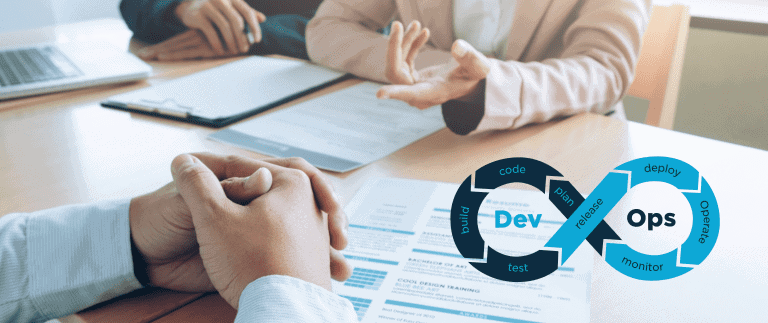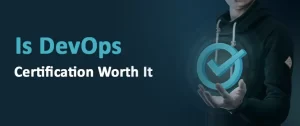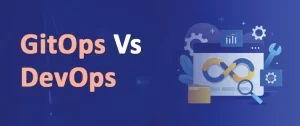AWS DevOps is quickly becoming the benchmark for software developers across the world. Almost every organization seems to assign value to this aspect. Also, the number of positions in this respect grows daily. However, grabbing a job opportunity that pays higher remuneration is easier said than done.
Even though there is less competition, getting hired for a highly paid position is not that easy. You need to prove that you are worth every penny that you will be paid. So, it is important to prepare thoroughly before appearing for an interview to land a dream job. You need resources that will help you overcome this problem and that is why you are here. These leading AWS DevOps interview questions and answers have been crafted to help any potential candidate get ready for an AWS DevOps engineer interview. The following questions will help to prepare for an AWS DevOps interview.
| Table of Contents AWS DevOps Interview Questions and Answers AWS DevOps Interview Questions for Freshers AWS DevOps Interview Questions for Experienced Conclusion |
AWS DevOps Interview Questions and Answers
Now that you know that the field is highly lucrative with minimal competition, you may be eager to get hired by a big corporation. However, before doing that, you must prepare yourself to face an interviewer. Even though there is a high demand for DevOps engineers, employers vet candidates upside down before recruiting them.
If you fail at the interview, you may not get hired. As such, your whole attempt to make a remunerative career could go in vain. However, you do not have to live with that. All you should do is grasp whatever questions you might be asked at an interview for the position of a DevOps professional. By doing so, you can leave a lasting impression in the minds of the recruiter and get hired.
AWS DevOps Interview Questions for Freshers
The questions asked of an AWS DevOps fresher differ from those of an experienced expert. Here are the popular questions that you may want to pay attention to when appearing for an entry-level job in the DevOps field.
1. What is AWS in DevOps?
AWS is a cloud service platform from Amazon that makes it easy for users to do DevOps work. The technologies assist in automating time-consuming activities, making it easier for teams to manage complicated environments and for engineers to swiftly and effectively operate with DevOps.
2. Why use AWS for DevOps?
There are several benefits of using AWS for DevOps. Here are some of them:
- AWS is a ready-to-use service. It does not require any headroom for software or setups to begin with.
- Whether it is dealing with one situation or scaling up to a hundred instances at a time, the provision of computational resources is virtually endless with AWS.
- AWS’s pay-as-you-go policy keeps your budgets and pricing in check to make sure that you can mobilize enough while getting an equal return on investment.
- AWS brings DevOps practices quite closer to automation to let you build faster and attain effective results in terms of development, testing, and deployment processes.
You can easily use AWS services via the command-line interface or APIs and SDKs, which make it highly effective and programmable.
3. What is CodePipeline in AWS DevOps?
CodePipeline is essentially a service provided by AWS to offer continuous integration as well as continuous delivery services. Besides this, it has provisions for infrastructure updates.
Activities such as building, deploying, and testing after every single build become easy with the user-defined set release model protocols. CodePipeline ensures that you can deliver new software features and updates quickly and reliably.
4. What is CodeBuild in AWS DevOps?
AWS presents CodeBuild, which is a fully managed in-house build service helping in source code compilation, testing, and the production of software ready to deploy. You do not have to manage, allocate, or provide to scale the build servers because this is automatically scaled.
In addition to this, build operations occur simultaneously in servers, thus providing the biggest benefit of not delaying the builds.
5. What is CodeDeploy in AWS DevOps?
CodeDeploy is a service that automates the code deploying process to any situation, whether it is Amazon’s EC2 instances or local servers. It helps to handle all the complexity associated with updating the applications for release.
The biggest advantage of CodeDeploy lies in its functionality to help users rapidly model features and release new builds while avoiding any kind of downtime during this deployment process.
6. What is CodeStar in AWS DevOps?
CodeStar is one package that performs a lot of things, from development to build operations and provisioning deployment methodologies for any users on AWS. Its single, easy-to-use interface allows users to manage all of the activities that are involved in software development.
On top of that, it immensely helps to set up a continuous delivery pipeline, thus helping developers to rapidly release code into production.
7. What is AWS Lambda in AWS DevOps?
It is a computation service that allows users to run their codes without explicitly provisioning or managing servers. With the use of AWS Lambda, users can run any code for their services or applications without prior integration. It is as easy as uploading codes and allowing Lambda to take care of everything else necessary to run and scale the codes.
8. What is AWS CodeCommit in AWS DevOps?
CodeCommit is essentially a source control service offered in AWS. It helps to host Git repositories in a highly scalable and safe manner. By using CodeCommit, you can eliminate the need to set up and maintain a source control system while scaling its infrastructure as required.
9. Explain Amazon EC2 in brief.
Elastic Compute Cloud, or Amazon EC2, is a secure web service that aims at providing scalable computation power in the cloud. In addition to being an integral part of AWS, it is one of the most widely used cloud computation services out there. Elastic Compute Cloud helps developers by making a straight forward process of Cloud Computing.
10. What is Amazon S3 in AWS DevOps?
Simple Storage Service, or Amazon S3 is an object storage service that offers an easy-to-use interface to store data and retrieve it effectively wherever and whenever you need it.
11. What skills are required for AWS DevOps?
Important skills required for an AWS DevOps engineer include operations, observability, automation, continuous delivery, the cloud, infrastructure as code, configuration management, and others.
| “Enhance your DevOps skills with our AWS DevOps certification training and pave the way for a successful cloud-powered career!” |
12. Name the key components of AWS applied in DevOps.
Each AWS service is meant to work depending on the DevOps culture. AWS CodeBuild, AWS CodePipeline, AWS CodeStar, and AWS CodeDeploy are some of the main components of AWS applied in DevOps.
13. What are the pillars of AWS?
There are 6 AWS Pillars of a well-crafted framework:
- Security
- Reliability
- Performance Efficiency
- Sustainability
- Cost Optimization
- Operational Excellence
14. What is the 6r from AWS?
AWS added the following 6 R’s to it:
- Re-platform
- Re-host
- Re-architect/Re-factor
- Retire
- Re-purchase
- Retain
15. What is migration in AWS?
AWS Server Migration Service or SMS is a service that allows you to move virtual-only workloads from Microsoft Azure or on-premises infrastructure to AWS without installing an agent. That makes it faster and easier to move workloads when you cannot install an agent.
16. Which languages and frameworks are compatible with AWS CodeBuild?
AWS CodeBuild offers ready-made environments for Java, Python, Ruby, Android, Node.js, Docker, and Go. It is also possible to set up a custom environment by initializing and creating a Docker image. It is then pushed to the DockerHub registry or the EC2 registry. Later, this references the image in the build project of the users.
17. What is AMI?
AMI is an abbreviation for Amazon Machine Image. It is an exact copy/replica of the system’s primary file system. When using AWS, you can obtain a machine image containing all the data necessary to launch an instance (virtual server in a cloud-computing environment). Root volume templates, permissions to turn on services, and block device mappings form part of an AMI.
18. Describe Infrastructure as Code (IaC).
It is one of the most popular interview questions for AWS DevOps engineer. IaC is a common DevOps practice wherein the code and the software development methods help to manage the overall infrastructure, from continuous integration to the version control system. Also, the API model in the cloud helps developers work programmatically with the entirety of the infrastructure.
19. Why is buffer important in AWS?
A buffer is important because it is used in AWS to sync different components that are used for handling incoming traffic. Using a buffer, you can balance between the usage of the pipeline and the incoming traffic rate, thus ensuring unbroken packet delivery under any conditions across the cloud platform.
20. What are the benefits of AWS for DevOps?
AWS for DevOps brings a range of advantages. Some of them are as follows:
- Automation
- Flexible programming
- Reliable and Secure
- Pay-As-You-Go
- Enhanced Scaling
AWS DevOps Interview Questions for Experienced
Experienced DevOps professionals are highly paid. Those with 4 to 5 years of experience can make a fortune. However, no organization gives a big cut to any employee so easily. The expert has to bend hard and prove his worth before getting his cut.
If you have earned enough experience in the field and are ready to make a big bang in AWS DevOps, you may want to prepare for big questions at an interview.
Preparing for tough questions is the name of the game. If you know the answers to those questions, you can bypass the interview like a breeze and live your dream life. Here are the most probable interview questions for AWS DevOps engineer with experience.
1. Which source repositories can be used with CodeBuild in AWS DevOps?
AWS CodeBuild can connect with AWS CodeCommit, AWS S3, and GitHub to pull the source code necessary for the build operation.
2. Are there any third-party integrations that you can use with AWS CodeStar?
Yes, AWS CodeStar works effectively with Atlassian JIRA, which is a reliable software development tool that Agile teams use. You can integrate it with projects seamlessly and manage it from there.
3. Can AWS CodeStar be used to manage an existing AWS application?
No, AWS CodeStar can only help users set up new software projects on AWS. Every CodeStart project includes all of the development tools, such as CodePipeline, CodeDeploy, CodeCommit, and CodeBuild.
4. What are Microservices in AWS DevOps?
Microservice architectures are essentially the design approaches taken while building a single application as a part of services. Each service runs using its process structure and can communicate with other services using a structured interface, which is both easy to use and lightweight. This communication is usually based on API and HTTP requests.
5. What is CloudFormation in AWS DevOps?
It is an important service that gives businesses and developers a simple way to make a collection of required AWS resources and then pass it on to the subsequent teams in a structured manner.
6. What is VPC in AWS DevOps?
A VPC or Virtual Private Cloud is a cloud network mapped to an AWS account. It forms one of the first points in the AWS infrastructure to help users create regions, routing tables, subjects, and Internet gateways in the AWS accounts. Doing this enables the users to use RDS or EC2 as per requirements.
7. What is AWS IoT in AWS DevOps?
It refers to a managed cloud platform that adds provisions for connected devices to interact smoothly and securely with all cloud applications.
8. What is EBS in AWS DevOps?
Elastic Block Storage or EBS is a virtual storage area network in AWS. It names the block-level volumes of storage used in the EC2 instances. AWS EBS is extremely compatible with other instances. Also, it is a reliable way to store data.
9. How is AWS Elastic Beanstalk different from CloudFormation?
CloudFormation and EBS are one of the important services in AWS. They are created to easily collaborate. EBS presents an environment to deploy applications in the cloud.
This is unified with tools from CloudFormation to manage the applications’ lifecycle. As such, it becomes convenient to use a variety of AWS resources. That ensures high scalability in terms of using it for various applications, from container-based solutions to legacy applications.
10. What are the future trends in AWS DevOps?
When an interviewer asks you this question, he is trying to evaluate your grip on the subject and research in the field. So, make sure to provide valid facts and respective sources to add a touch of positivity to your candidature. Additionally, explain how novel software methodologies and Cloud Computing are making a big impact on businesses across the world and their potential for rapid growth in the future.
11. What are the most important AWS services for DevOps?
Some of the important AWS services for DevOps are Amazon Elastic Container Services and AWS Lambda.
12. How does AWS DevOps auto-scaling work?
Automatic scaling or auto-scaling is a cloud computing methodology that dynamically and automatically adjusts the number of available computer resources. In many cases, the server load establishes the necessary number of servers, resulting in the number of resources. For example, a web page or web application’s server count might be increased or decreased dynamically in response to the active number of people accessing the website.
13. Can I vertically scale an AWS instance?
Yes. This is a wonderful thing about virtualization in AWS and the cloud. To do this by using SpinUp, stop the instance and then remove the root EBS volume by separating it from the server. Now, stop your live instance and delete its root volume. Note the unique device ID, attach the root volume to your new server, and then start it up again. That is how you move up and down in place.
14. Name three crucial DevOps KPIs.
The three important KPIs are:
- Meantime to failure recovery
- Percentage of failed deployments.
- Deployment frequency
15. How does Instacart use AWS DevOps?
Instacart automates deployments for all back-end and front-end services using AWS CodeDeploy. AWS CodeDeploy allows Instacart’s engineers to focus more on their product and pay less attention to deployment operations.
Conclusion:
Although AWS DevOps is a less competitive field, landing a job in this sector is not so easy. You need to try hard to win the attention of the interviewer. Even if you have enough knowledge of the subject, you should prepare for the interview comprehensively and be ready for questions that might be bombarded to you. So, check the above AWS DevOps interview questions and prepare yourself beforehand. That should help you book your slot in this highly remunerative field.
| “Want to take your IT career to the next level? Explore our Advanced Cloud Native DevOps Master Program to enhance your DevOps career now!” |
Amol Shete
Senior Software Engineer
A well-experienced DevOps engineer who loves to discuss cloud, DevOps, and Kubernetes. An energetic team player with great communication & interpersonal skills.
FAQ's
The role of AWS in DevOps includes providing services and tools to help teams streamline and automate their development and deployment processes. It may seem simple, but the relevancy of AWS makes it extremely important. This is why AWS experts are in high demand in any tech company.
On the other hand, intricate enterprise-grade projects that involve tasks like cloud migration, cluster orchestration and end-to-end release automation require advanced expertise. However, by adopting an approach of starting small and gradually expanding knowledge and skills, individuals at all competency levels can successfully handle DevOps projects.
No, AWS and DevOps are not easy to learn. Familiarity with programming languages and the Amazon Web Services toolset is necessary to learn AWS DevOps. If you know the basics, you may find it easy to learn and become a DevOps Engineer. So, make sure you stick to the fundamentals first before trying anything else.
Quantify achievements and results delivered from the project. Share code samples demonstrating expertise in scripting, automation, and infrastructure-as-code. Use visual diagrams to give insights into the project architecture and pipelines implemented. Authoring blog posts and tutorials about your project experience can further validate your skills.
Here is a checklist to deal with interview questions for AWS DevOps engineer:
- Prepare for the most common interview questions.
Assess common AWS DevOps interview questions and practice answering them. Make sure to understand the concepts behind the answers and the thought process used to arrive at the solution.
- Highlight your past experiences.
Get ready to discuss your past experiences and how they apply to the position you are currently seeking. If you have worked on AWS DevOps projects previously, talk about your role and explain what you learned.
- Be prepared for whiteboard exercises.
Some AWS DevOps interviews may include whiteboard exercises. Here, you will have to solve problems on a whiteboard. So, practice solving on a whiteboard, and get ready to explain your thought process.
- Follow up after the interview.
After the interview is over, follow up with the interviewer and thank them for their time. Also, reiterate your interest in the position.
That should ensure you build a friendly relationship with the interviewer. Even if you do not get hired, your follow-up call will remind the interviewer about you, who may direct you to another company.
The ability to automate through code is integral to the DevOps philosophy of simplifying and streamlining operations.





